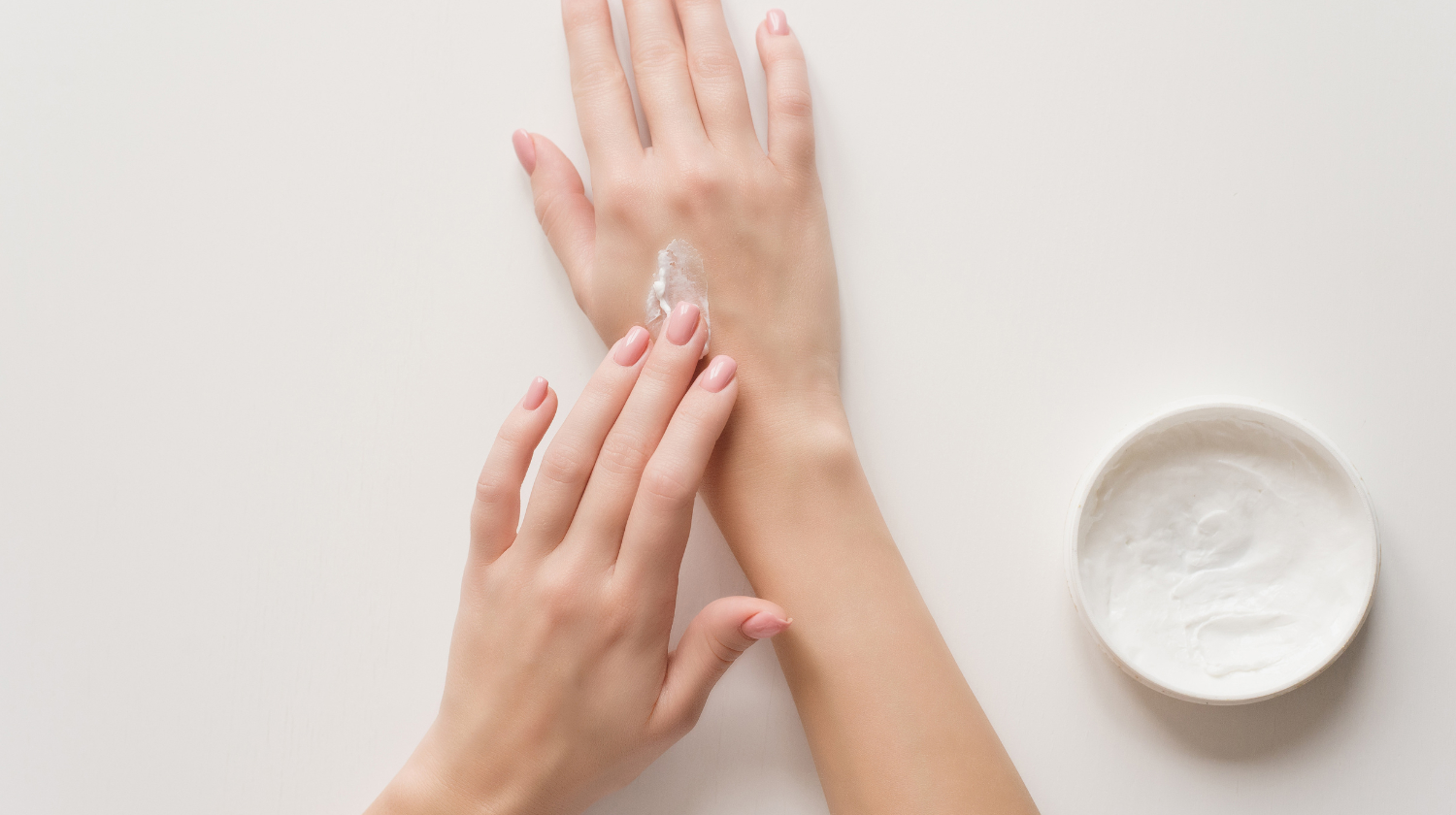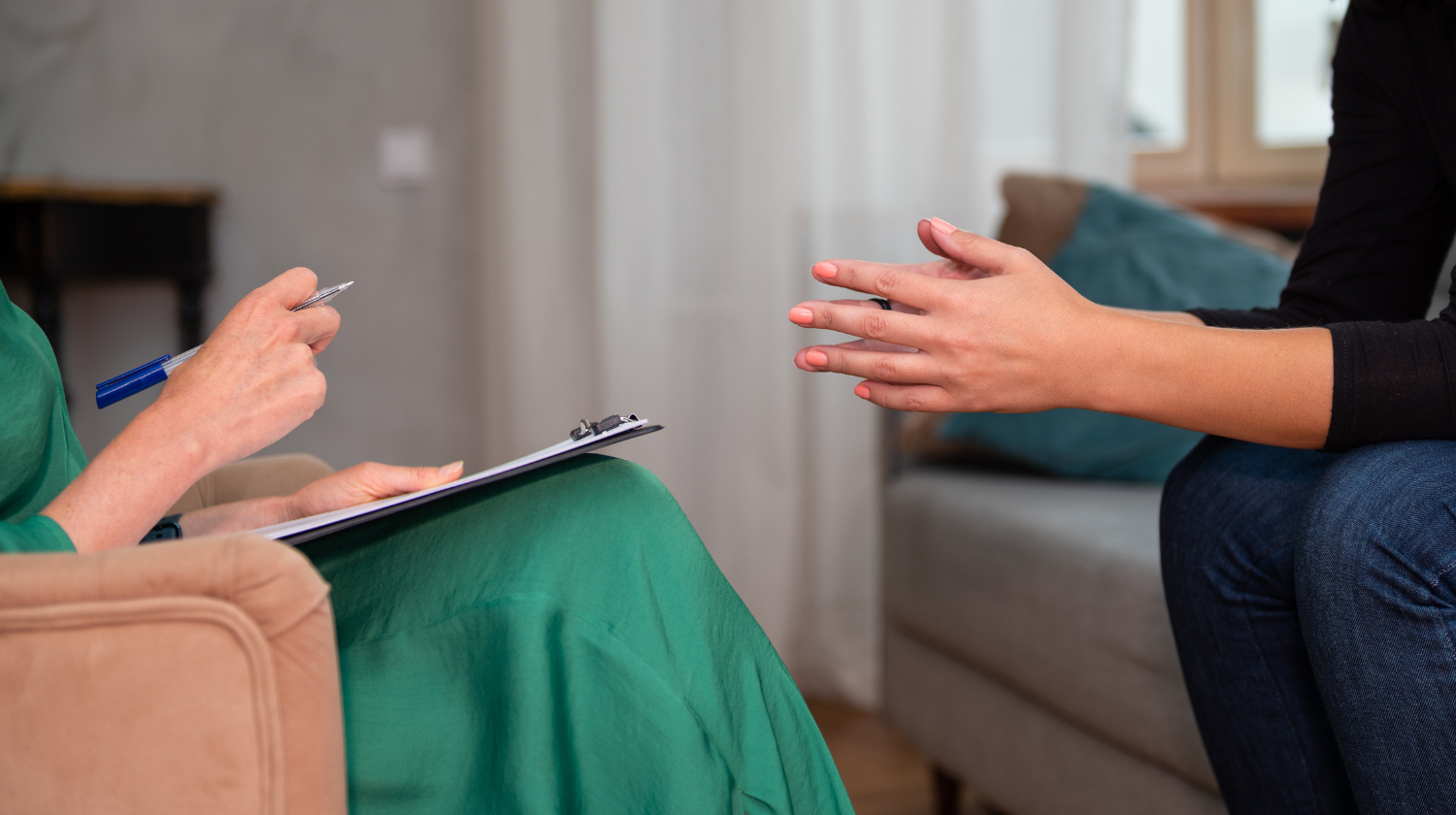 Expert's opinion
Expert's opinion
Expert's opinion
The article is a subjective view on this topic written by writers specializing in medical writing.
It may reflect on a personal journey surrounding struggles with an illness or medical condition, involve product comparisons, diet considerations, or other health-related opinions.
Although the view is entirely that of the writer, it is based on academic experiences and scientific research they have conducted; it is fact-checked by a team of degreed medical experts, and validated by sources attached to the article.
The numbers in parenthesis (1,2,3) will take you to clickable links to related scientific papers.
Anxiety And Itching 2024: Symptoms, Causes & Treatments

Anxiety is a common mental health condition affecting millions worldwide. While anxiety can cause physical symptoms such as sweating, trembling, and a racing heartbeat, lesser-known symptoms may also occur. Itching is commonly reported as a symptom of anxiety by many individuals who suffer from this condition. But is there a relationship between the two?
Several anxiety remedies, such as therapy and medication, are available to help manage anxiety symptoms and enhance overall well-being. Let’s explore the link between anxiety and itching, the possible causes, and treatments.
Does Anxiety Cause Itching?
Anxiety can cause itching in some individuals. Anxiety triggers the release of stress hormones, such as cortisol and adrenaline, which can cause physical symptoms throughout the body, including itchiness. Stress and anxiety can lead to skin picking or scratching, which causes skin irritation, infection, and inflammation, which can then add more anxiety, creating a vicious cycle. It’s important to address both the underlying anxiety and the physical symptoms of itching to improve overall health and well-being.
The Link Between Anxiety & Itching
While research suggests the mind-body connection[1] plays a significant role in developing itchy skin associated with anxiety, the exact relationship is not yet fully understood. When a person experiences stress or anxiety, the body triggers stress hormones like cortisol and adrenaline.
These hormones affect various systems within the body, including the immune system and the skin. Stress hormones can signal the release of histamines, which cause skin inflammation and increase the sensory perception of itching, causing a mild itch to feel more intense.
Although itching and anxiety disorders are complex, proper diagnosis and treatment by a mental health professional can help manage and alleviate symptoms.
Symptoms Of Itching Caused By Anxiety
Anxiety-induced itching is also known as psychogenic itching.[2] As the body’s stress response to psychological stress or anxiety increases, psychogenic itching can worsen.
The most common symptoms of itching caused by anxiety are:
- Itchy skin, often accompanied by a burning or tingling sensation.
- Redness, swelling, or rash-like patches on the affected skin area.
- Dry, scaly, or flaky skin.
- Itching that may come and go or persist for an extended period.
- A constant urge to scratch an affected area leads to skin damage or secondary infections.
- Difficulty concentrating, irritability, or restlessness due to the continuous sensation of itching.
Causes Of Anxiety Itching
Different social, physiological, and psychological factors can trigger anxiety itch. Understanding the possible causes of anxiety itch is essential for effective management and treatment. Here are some common causes of chronic itch related to anxiety:
- Psychological stress.
- Anxiety and depression association.
- Trauma and post-traumatic stress disorder.
- Obsessive-compulsive disorder.
- Personality disorders.
- Inflammatory skin conditions.
- Neurological conditions.
- Autoimmune diseases.
- Medications.
Anxiety-related itching can be uncomfortable and frustrating. Worse, scratching stimulates an increased sensitivity to itching, creating a vicious cycle. While these factors or other underlying medical conditions play a significant role in developing or exacerbating the itching sensations, treatments are available.
Treatments For Anxiety Itching
The treatment options for anxiety itching depend on the underlying cause and severity of the symptoms. In some cases, addressing the psychological factors contributing to anxiety disorders and stress or depression can help alleviate itching sensations. CBT and relaxation techniques may help manage the symptoms of anxiety and reduce the incidence of excessively itching skin.
In addition, using topical treatments like moisturizers and medicated creams can help soothe itching skin and reduce chronic itching sensations. In severe cases, prescription-strength medications may be necessary to manage chronic itching symptoms. Working with a healthcare provider to determine the proper treatment for anxiety itching is essential.
How To Prevent Itching Caused By Anxiety
Preventing itching caused by anxiety can be challenging, but you can alleviate the symptoms. Learn how to stop stress itching with these strategies:
Stress-Reducing Activities

Stress-reducing activities[3] can effectively alleviate anxiety-induced itching. Stress reduction techniques can help reduce the body’s stress response, lowering the chemicals released that cause itching sensations. Here are some everyday stress-reducing activities that can be helpful for anxiety-induced itching:
- Mindfulness meditation.
- Yoga.
- Deep breathing exercises.
- Progressive muscle relaxation.
- Guided imagery.[4]
It is essential to find the stress reduction techniques that work best for you and to incorporate them into your daily routine. By managing stress and anxiety, you may be able to alleviate your itching sensations and improve your overall quality of life.
Physical Exercise

Physical exercise[5] can positively impact mental health and lessens anxiety or depression. Engaging in physical activity also helps reduce stress levels, which can alleviate itching sensations. Exercise is proven to improve circulation, promote healthy skin, and release endorphins, which are natural painkillers.
Incorporating regular physical activity into your routine can be a beneficial strategy for managing anxiety-induced itching and promoting overall health and well-being.
Adequate Rest

Getting enough rest is essential for maintaining mental health and relieving symptoms of anxiety-induced itching. When your body is sleep-deprived, it can experience heightened stress and anxiety levels, exacerbating itching sensations. Getting adequate sleep can help reduce stress and promote relaxation, which can help calm your body’s stress response and reduce itching sensations.
Topical Creams And Lotions

Topical creams or lotions can be a helpful way to soothe itching skin and alleviate symptoms of anxiety-induced itching. These products typically contain ingredients that calm and numb the skin to relieve itching sensations like:
- Menthol.
- Camphor.
- Topical analgesics.
Some products also contain anti-inflammatory agents that help reduce redness and irritation. While topical creams or lotions do not cure anxiety-induced itching, they can temporarily relieve and improve overall comfort. Their hydrating properties eliminate the dry skin source of itching.
Therapy And Counseling

Therapy and counseling can be effective in helping to manage anxiety-induced itching.
- Cognitive-behavioral therapy[6] — helps change negative thought patterns and behaviors contributing to anxiety and stress. By identifying and addressing these patterns, individuals may be able to reduce their anxiety levels and alleviate itching sensations.
- Behavior modification therapy — focuses on changing behaviors that may contribute to anxiety, such as avoidance or procrastination. By learning new coping mechanisms and stress management techniques, individuals may be able to reduce their anxiety levels and decrease the frequency and intensity of itching sensations.
Overall, therapy and counseling can be valuable in managing anxiety-induced itching. Individuals may benefit from seeking professional help from a trained therapist or counselor to assist them in their treatment.
Nighttime Itching
While itching can be uncomfortable during the day, can anxiety cause itching at night? Stress triggers the release of chemicals that lead to changes in our nervous system, resulting in night-time itching. When resting, our awareness of itching can intensify, making it difficult to sleep. This is counterproductive to the adequate sleep recommendation above.
Besides lowering the itching threshold, excessive scratching can lead to skin damage and other serious skin problems, creating a cycle of itching and pain. If you experience itchy skin at night, here are several things you can add to your nightly routine to help relieve the symptoms:
- Lotion or moisturizer — hydrating your skin before bed may help lessen itch severity while you sleep.
- Over-the-counter anti-itch cream — anti-itch cream or calamine lotion can relieve unpleasant itch sensations while you sleep.
- Cooling compress — if you experience chronic itch at night, applying a cold, wet compress may help the itch-anxiety cycle.
- Lower the temperature — warmer temperatures can make the itch worse. Adjusting the room temperature at night can promote relaxation, lower anxiety, and reduce itching.
- Practice meditation or yoga — reducing stress levels before bed can reduce the psychogenic itch.
Addressing chronic itch conditions before bed can help alleviate the vicious cycle of itching and disturbed sleep.
The Takeaway
Anxiety itching is a common symptom caused by various physical and psychological factors. Persistent itching can be frustrating and uncomfortable, but proper treatment can effectively manage symptoms.
Identifying the underlying cause of anxiety itching is crucial for effective treatment, including therapy, medication, or addressing any underlying physical conditions. In addition, stress-management techniques such as exercise, meditation, and relaxation can help reduce stress and prevent anxiety and itching.
By managing anxiety and stress, individuals can reduce their risk of developing anxiety itching and improve their overall quality of life.
+ 6 sources
Health Canal avoids using tertiary references. We have strict sourcing guidelines and rely on peer-reviewed studies, academic researches from medical associations and institutions. To ensure the accuracy of articles in Health Canal, you can read more about the editorial process here
- Renoir, T., Hasebe, K. and Gray, L. (2013). Mind and body: how the health of the body impacts on neuropsychiatry. Frontiers in Pharmacology, [online] 4. doi:https://doi.org/10.3389/fphar.2013.00158.
- Misery, L., Dutray, S., Chastaing, M., Schollhammer, M., Consoli, S.G. and Consoli, S.M. (2018). Psychogenic itch. Translational Psychiatry, [online] 8(1). doi:https://doi.org/10.1038/s41398-018-0097-7.
- Matko, K., Sedlmeier, P. and Bringmann, H.C. (2021). Differential Effects of Ethical Education, Physical Hatha Yoga, and Mantra Meditation on Well-Being and Stress in Healthy Participants—An Experimental Single-Case Study. Frontiers in Psychology, [online] 12. doi:https://doi.org/10.3389/fpsyg.2021.672301.
- Krau, S.D. (2020). The Multiple Uses of Guided Imagery. Nursing Clinics of North America, [online] 55(4), pp.467–474. doi:https://doi.org/10.1016/j.cnur.2020.06.013.
- Arida, R.M. and Teixeira-Machado, L. (2021). The Contribution of Physical Exercise to Brain Resilience. Frontiers in Behavioral Neuroscience, [online] 14. doi:https://doi.org/10.3389/fnbeh.2020.626769.
- Kaczkurkin, A.N. and Foa, E.B. (2015). Cognitive-behavioral therapy for anxiety disorders: an update on the empirical evidence. Dialogues in Clinical Neuroscience, [online] 17(3), pp.337–346. doi:https://doi.org/10.31887/dcns.2015.17.3/akaczkurkin.



